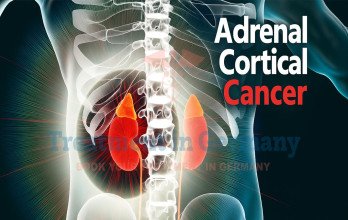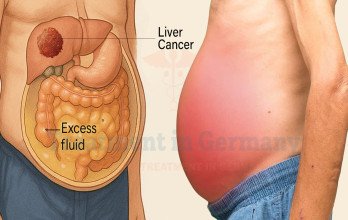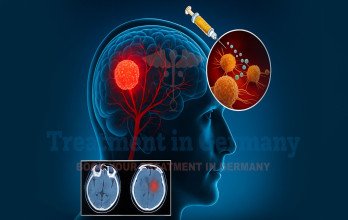
Ascites in liver cancer is a sign of disease progression that requires expert management. Learn why international patients trust German healthcare centers for advanced diagnosis and treatment in Germany.

Adrenal cortical cancer treatment in Germany offers advanced care through dendritic cell therapy and TACP therapy, led by expert German specialists with complete support for international patients throughout their treatment journey.

Stage 4 bladder cancer treatment in Germany offers personalized treatment options including dendritic cell therapy and targeted embolization, led by expert German specialists and supported care for international patients.

Learn how ascites develops in liver cancer and other abdominal cancers, and why German healthcare centers are trusted by international patients in Germany.

Discover how oncolytic viruses target brain tumors, break through barriers, and activate the immune system, with support from advanced therapies and personalized treatment in Germany.

Explore facts about metastatic stage 4 colorectal cancer and learn how innovative therapies like dendritic cell and TACE treatment in Germany support international patients and survival.

Bile duct cancer treatment in Germany offers advanced treatment options like dendritic cell therapy and TACE therapy, guided by specialists and supported care for international patients.

Explore lung cancer types, stages, and treatment options in Germany, including TPCE, TACP, and dendritic cell therapy, with expert care for international patients.

Dendritic cell therapy for glioblastoma in Germany provides personalized immune-based treatment led by experienced specialists, with dedicated support for international patients throughout their treatment journey

Discover how dendritic cell immunotherapy for liver cancer in Germany offers a targeted and personalized treatment option led by German specialists with full international patient support.

Explore all new brain cancer treatment options in Germany, including dendritic cell therapy, radiation, and chemotherapy, with support from expert treatment and new clinical trials.

Discover how immunotherapy for colon cancer in Germany provides personalized treatments like dendritic cell therapy, with expert care and full support for international patients.

Explore new treatments for glioma in Germany, including dendritic cell immunotherapy, supported by advanced diagnostics and care from German specialists.

Explore bile duct cancer treatment in Germany with TACE and dendritic cell immunotherapy. Learn about procedures, recovery, and international patient support by German specialists.

Explore stage 4 stomach cancer treatment in Germany, including dendritic cell immunotherapy and TACP therapy, supported by expert German specialists and coordinated care for international patients.

.webp)
 (1).webp)

.webp)
 (1).webp)


.webp)
 (1).webp)

.webp)
 (1).webp)
